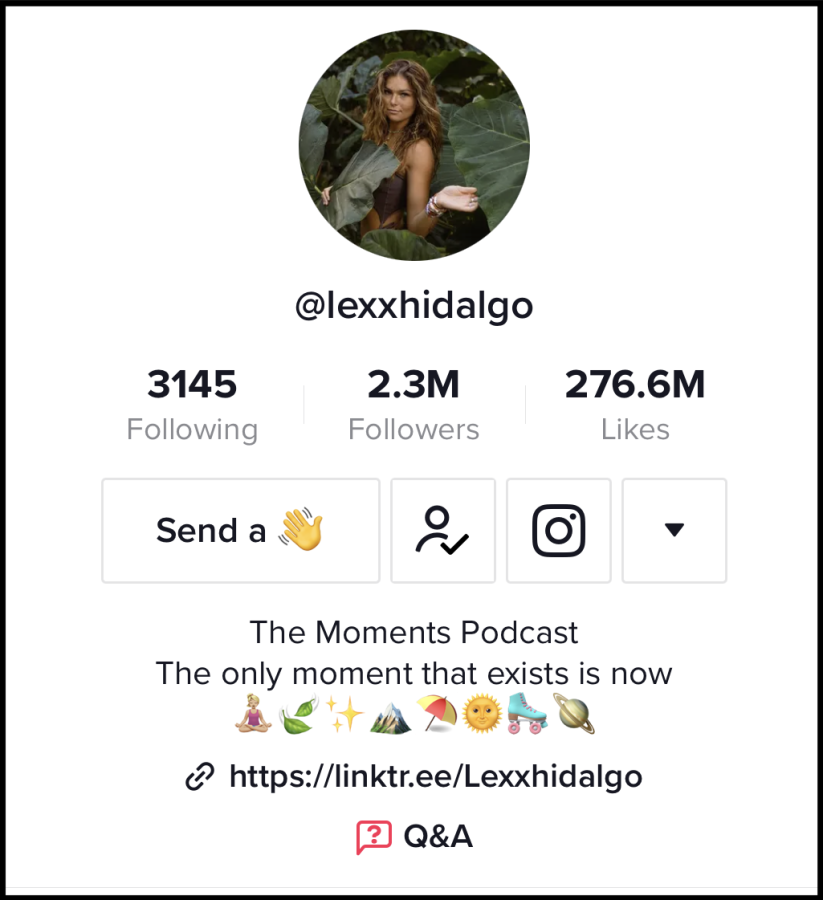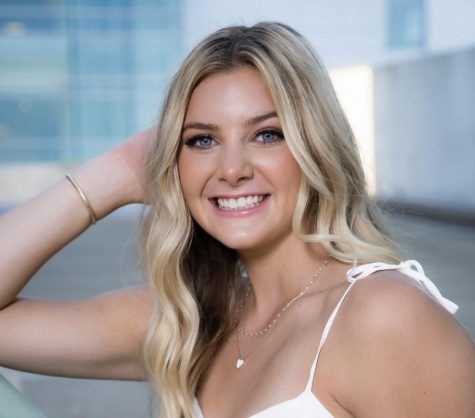As social media influencers’ profits increase, viewers’ appreciation for “the little things” decreases. Comparing materialistic items such as clothing brands and makeup products has now shifted into comparing experiences such as sunset views and night time routines.
A new social trend is emerging: the practice of self-care and living in the moment. While influencers promoting this content try to bring attention to the idea that everyone’s life is unique, many viewers are left feeling dissatisfied because they can’t romanticize their life in the same ways as content creators.
TikTok, Instagram, YouTube and other social media sites are constantly creating new trends. Upon seeing these trends, many people feel urged to make purchases or lifestyle changes to follow along in hopes of obtaining the same satisfaction as seen in the media.
Hannah Meloche is one of many influencers who promote self love and living in the moment through videos and posts. As her platform on social media has grown, so has Meloche’s income and financial stability. This gives her the ability to travel the world while she continues to show her viewers how she appreciates each moment by romanticizing the “little” things in her life, ranging from glorious sunrises along the Hawaiian ocean to dancing with friends in the sand to making coffee in her glamorous kitchen.
With social media being a part of her everyday life, senior Liv Rogers has seen elaborate self-care videos on TikTok. “I feel like the simplicity of my life can’t be romanticized to the same extent as I see many influencers do on TikTok. I don’t have access to wake up on a beach and watch the sunrise or the time to spend making an intricate breakfast in the mornings with friends,” Rogers stated.
Many simple parts of life can indeed be fulfilling, but constantly comparing lifestyles and experiences is what leaves many feeling empty. Teens struggle to differentiate between the realistic and posed moments portrayed on social media. It is easy for viewers to forget that the “live in the moment” content they watch has been carefully filmed and edited by content creators to get more views.
The message behind these unattainable self care videos is to show how much beauty there is in the little things—nature, friends and food—yet the viewers who don’t have time to travel, friends that live close or financial flexibility are left chasing an unrealistic lifestyle. Not only do they have limited access to materialistic trendy items, but they also feel that they will never attain the same happiness as seen on social media.
High school students are constantly surrounded by the expectations of social media. The content showcased on social media influences peoples’ expectations, altering their perception of reality.
Lexi Hidalgo is another TikTok influencer who promotes self-love. Hidalgo started off as a typical 20-year-old who was trying to make the best of the COVID-19 quarantine. Her relatability in personality and lifestyle led many TikTok users to find comfort in her videos. Growing in popularity from motivational talks and workout videos she made during the pandemic, Hidalgo has accumulated over 2 million TikTok followers. She has also created a podcast and clothing line that further spread her message of living in the moment.
Fans have watched as her surge into fame has given Hidalgo many opportunities to explore the world. Senior Halle Vice has viewed TikToks by Hidalgo and other similar influencers. “After watching travel and self-care TikToks, I wish I could live more in the moment. That’s not possible with how I live, and it makes me feel worse that I can’t romanticize the little things to the same extent,” Vice stated.
As many content creators grow, more doors are opened for them. The attainable lifestyles that they once showcased on social media have grown and fans are left feeling more unsatisfied with their lives. It is not uncommon for influencers to lose their relatability with viewers as they grow in fame and fortune. while their lives are shifting, popularity often alters influencers’ lives, and i
An entire marketing stream has developed from the promotion of self care and living in the moment. Senior Karin Fowler, a frequent TikTok user, has seen a lot of “living in the moment” content on her social media. “I think the idea of living in the moment has become a total fallacy. Living in the moment is shown to be this perfect, free, zero consequence, luxury life,” Fowler continued. “Promoting this lifestyle is unfair when they have resources that not everyone has.”
Social media provides an income to influencers with fans and viewers serving as the market’s consumers. The flexibility in income, time and responsibilities that is normalized on TikTok is a privilege— not a reality.
Living in the moment is portrayed on social media to include elaborate travel, excessive quality time with friends and the constant surrounding of nature. However, life, happiness and fulfillment look different for everyone. Living in the moment comes from being present in every moment and appreciating all that life has to offer.
Self-care is different for everyone and it is important to focus on the beauty of individuality instead of the beauty that the media sets as a standard. Being in love with life is not always easy and self-care should be achievable and fulfilling for everyone.









